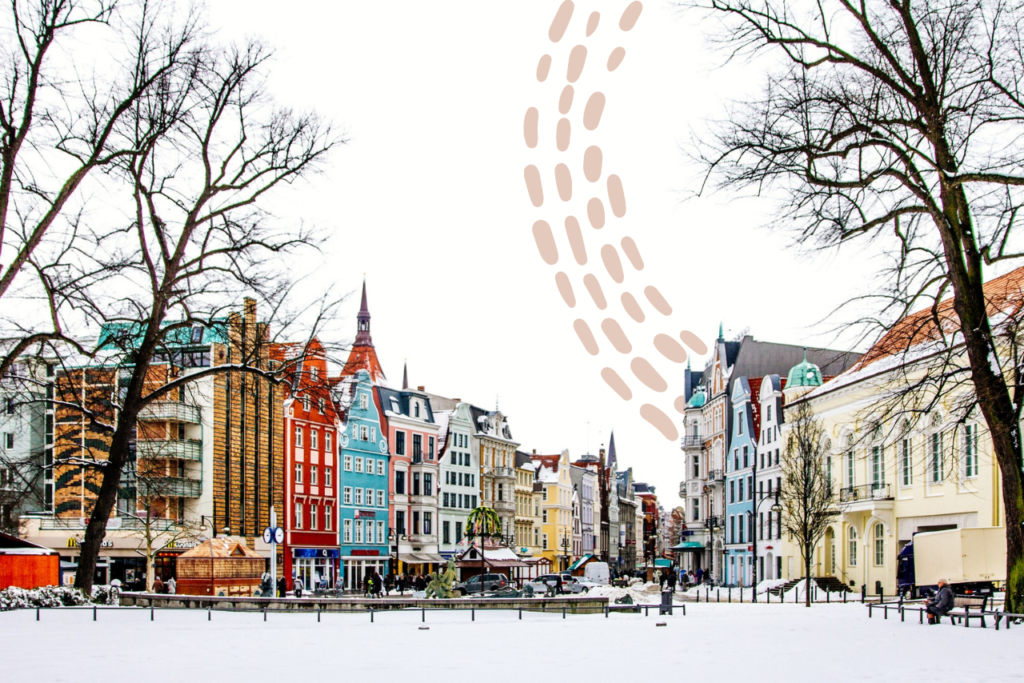Willkommen! Whether you want to move for access to a highly-regarded education system, are keen to pursue a new career, or you simply want to sample a country that was last November named ‘the best country in the world’ for the fifth year running, moving to Germany could be just the change you need.
If you’re wondering how to kickstart your new journey, then you’ve come to the right place. No, not Germany, silly, but rather, here, to this beginner’s guide on relocating to Germany.
Different Paths To Entry
So, you’re keen to legally move to Germany rather than simply visit? Well, the first thing you need to do is secure a work visa or get yourself enrolled in an educational institution.
Tourists are welcome from all around the world – in fact, the country has a reputation for being welcoming – but are not allowed to find work, enrol in an institution, or stay beyond the allotted period of 90 days.
However, those from the EU countries and the wider Schengen area, the United States, Canada, Australia, New Zealand, Japan, South Korea and Israel, are generally allowed to enter on a tourist visa and then apply for a residence permit after they have successfully secured a job. For the UK government’s advice on entering Germany for work, click here.
The government of Germany also offers a job seeker visa for people coming from the countries not mentioned above so they can stay for six months while finding a job. Highly skilled professionals can also qualify for a blue card that allows quick entry into Germany and the rest of the EU. With a blue card, you might get an approved work visa for at least four years.

Registration Process
After you have arrived, the first thing you need to do is to register your home address with the relevant authorities. This process is called Anmeldung in German.
Registering your address is an official requirement and should never be skipped under any circumstances or for any reason. The process of registration only takes a few minutes to complete. After registration, you will be given a piece of paper that shows your proof of stay. You will be using this document to apply for basic services like an internet connection, buying a sim card or opening a bank account.
Read: 7 tips for travelling to Berlin for the first time
Residence Permit
After you have settled down, and if you intend to stay for more than 90 days in Germany for work or study, then you need to apply for a residence permit. However, the authorities responsible for issuing residence permits usually prefer to engage in German, so being accompanied by a native can help you negotiate the bureaucracy involved more effortlessly.
It should be noted that the residence permit issued has a validity period of two years after which you will need to renew it. To apply for a permanent residence permit, you’ll need to have lived in the country for five years, and have a strong grasp of German (at least B1 level, recognised and certified).

Luggage
When flying to Germany from abroad, the standard baggage allowance is usually 23 kg. Of course, you can carry more with you by booking extra baggage when purchasing the ticket, though this is an expensive option when you’ll likely be bringing a fair amount with you.
It’s likely you’ll need to avail yourself of a relocation service, whether that’s in the form of air, shipping or rail freight. To find the cheapest quote, try the price comparison website for removal companies The Relocator.
Health Insurance
As an expat, you are required to have a health insurance policy that is recognised by the German government. Depending on the duration of your stay, you can either go for general health insurance or an expat insurance plan (often called ‘incoming health insurance’) that focuses on facilitating expats and their stay in Germany.
There are a plethora of health insurance providers – both public and private, as well as a mix of the two – that offer different services so make sure you have read the terms and conditions before signing up for a particular policy. Furthermore, you should compare the services being offered so it becomes easier for you to choose one.
Expats living in Germany are eligible for state healthcare, which is funded by social security contributions. All public insurance is charged at just under 15% of your gross income, though this is split equally between you and your employer (7.3% each). Additional private health insurance can help expats gain access to potentially shorter waiting times and better hospital conditions.

Renting In Germany
Finding accommodation ahead of time is another step you should take to make the process easier. You can look for apartments and shared places on the internet. It’s a good idea to rent out a place for a short time at first, to get a taste for the neighbourhood and give you the option of moving to a different location if that particular area doesn’t suit your needs.
The most popular platforms for finding furnished apartments for rent in Germany include Tempoflat, WG-Gesucht, Wunderflats, Immobilienscout24, Immowelt, Deutsche-wohnen and even Airbnb. The latter, it should be noted, tends to be pretty expensive in comparison.
Opting for a furnished apartment is much more manageable. German appliances run on a different voltage than most countries and bringing your household goods might be of no use. You can check the voltage requirements of your home appliances and ensure whether they can work at the provided voltage.
The good news, however, is that rent in Germany is, on average, significantly cheaper than in the UK.
Choosing A Bank
Though you’re not legally required to open a bank as an expat in Germany, with many foreign banks having local branches in the country, it does make financial sense to do so. In many cases, employers and landlords will require you to have a local bank account.
You can either open your bank account in a traditional bank after your arrival or look for mobile banks that offer their online services. You can even open a bank account beforehand using these online services, known as direktbanks.
Opening a German bank account is essential since you will be receiving your salary in the bank. Money transfer services can also be used if you are not on a work visa. However, before you choose a service, take a look at the exchange rates and service charges so you are able to make the best choice.
Some of the best expat-friendly, English speaking banks in Germany include Vivid, N26 and Commerzbank.
Learn The Language
It’s not mandatory to learn German (unless you want to apply for that Permanent Residence Permit, of course) but it will certainly help you communicate with ease when carrying out day-to-day activities that involve interacting with locals.
German is arguably one of the most difficult languages to learn, and it will take time before you are able to speak it fluently. Fortunately, as will every language, the best way to learn is through total immersion – as in, living in Germany and engaging with locals as much as possible – which is the perfect excuse to make plenty of new friends, don’t you think?
Read: 5 IDEAL tips for learning a new language fast online
The Bottom Line
There are quite a few aspects you need to take care of so your relocation is an easy, hassle-free process. But once you’ve got over the bureaucracy, language barrier and the settling in process, you’re sure to find Germany a wonderful place to live. Gute Fahrt!





